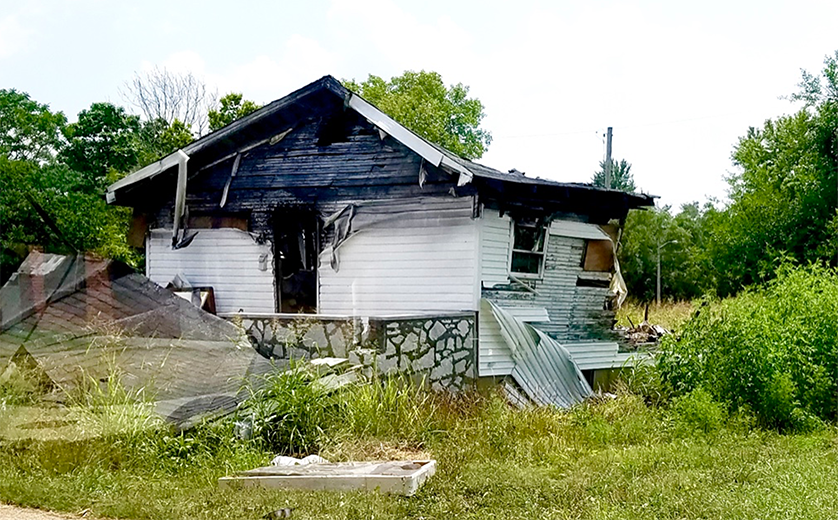What political and social forces have led to concentrated, intergenerational poverty in communities of color? And how can social workers combat the effects of intentional urban blight?
Brown School students engaged with these questions this summer through the week-long immersion course “Poverty – The Impact of Institutionalized Racism,” taught by Associate Professor Jack Kirkland.
The course takes place in East St. Louis, Ill., a small city Kirkland describes as “depressed, deprived, and diminished in almost all regards.” Living in the context of a stratified and segregated metro region, 97 percent of East St. Louis residents are African American. The unemployment rate in the city is 16 percent, and nearly half of residents live below the poverty line.
For three years, Kirkland has brought groups to witness the symptoms of institutionalized racism in East St. Louis — health and housing disparities, economic disadvantages, poor educational outcomes — while seeking to understand and confront the causes.
Throughout the program students stay at Hubbard House, a Catholic Urban Programs facility that hosts volunteers in East St. Louis. Each day students examine the city’s assets and challenges, in site visits and conversations with community members and professional consultants.
“Residents expressed that they were treated as the human residue of the metro area,” Kirkland said, “by having to survive with a great need for almost everything that would make life similar to that of the many other people in the metro region.”
Kirkland uses these conversations and lectures to illuminate the “hidden heritage” of racist policies that have created and reinforced the inequities seen today. With a deeper and more personal knowledge of systemic issues such as segregationist housing policies and racial profiling by police, students learn to recognize the connections between racism and community disinvestment.
This experience is particularly crucial for students of social work, who learn to advance community development through an equity lens.
“Students … generally emerge stating that they have had a new awakening in understanding deprivation and suppression in a way that they had never thought or contemplated, and are better prepared to untangle the elements that entrap those encased in institutionalized poverty,” he said.
The 2017 course cohort included seven Master of Social Work students, led by Kirkland and three doctoral students. One of the participants, Rameez Ul Hassan, MPH ’16, MSW ’18 candidate, recorded the immersive experience in a series of photos and personal interviews. He shares these moments through Humans of Brown, a storytelling project he founded.
Ul Hassan’s photographs convey the sense of loss in East St. Louis, with scenes of vacant lots, boarded-up homes and walls overgrown with vines. But they also show the face of resilience, with portraits of East St. Louis residents he met throughout the week, including activists, social service agencies, religious leaders and community officials.
Through these conversations and experiences, students examined the roots of the problems East St. Louis faces. Kirkland asked students to reframe the question “How do you help poor people?” into “Why are people poor?”
Kirkland’s own background — as an activist and strategist in the Civil Rights movement, then as a public servant and elected official — underlies his emphasis on systems-level change. Through this course, Kirkland wants students to consider the difference between social justice work that is meaningful and personally rewarding, and work that is significant and impactful at a systemic level.
The transformative power of the course is reflected in each of Ul Hassan’s interviews with his classmates.
“The way I practice social work will never look the same again,” said LaHaji Thomas, MSW ’19 candidate. “As I look back over the work that I’ve been doing, I recognize that though the work was meaningful and fulfilling, when I left the work, the problem still existed. By practicing work that is significant, I will be able to focus on the root of the issue to produce a solution.”
“This course was simultaneously heartbreaking and uplifting. It showed us the great problems of our time but gave us the initial blueprints for their dismantling,” said Andrew Hutchinson, MSW ’19 candidate. “I will never forget Dr. Kirkland’s words, ‘Show me a town of 100,000 and I’ll show you their own East St. Louis.’”
Read all interviews at facebook.com/humansobrown.
